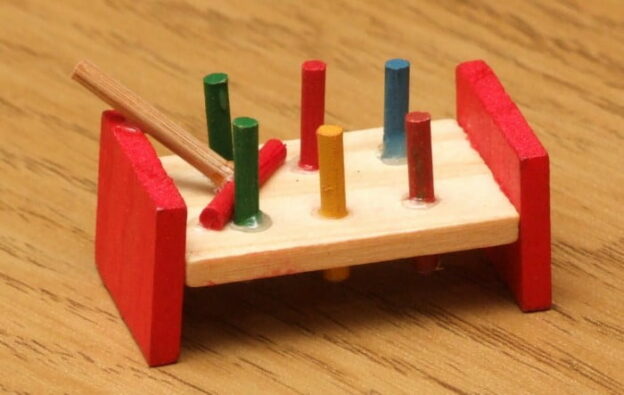Yaakov and Leah had their first (perhaps only) argument on the morning after the wedding feast. He had expected Rachel to join him in his abode that night but, unknown to him until morning’s light, “behold, it was Leah” (Beraishis 29:25).
Midrash Rabbah (ibid) recounts how our forefather exclaimed “Deceiver, daughter of deceiver! Did I not call out ‘Rachel’ and you answered me?”
Leah well parried the thrust: “Is there a barber without apprentices? Did your father not call out ‘Esav’ and you answered?”
Touché.
But the Torah isn’t a drama presentation. And the Torah doesn’t criticize either subterfuge. What are we to glean about our lives from that comeback? On the most simple level, I think it conveys something about how we – whether we are teachers, parents or just people (because all of us are examples to those around us) – convey less (if anything) with words than we do with our actions.
I learned that lesson well, if a bit embarrassingly, many years ago, when I was typing away on a keyboard and my four-year-old son sat down on the floor near my desk with a pegs-and-holes toy, which his imagination had apparently repurposed into a word processor (this was B.C. – Before Computers), and proceeded to imitate me.
It was very cute, and I smiled. Until, that is, his little sister crawled over and tugged at him. Showing annoyance, he turned to her and said, loudly and tersely, “Will you please stop? Can’t you see I’m working?” Yes, he was, as they say in the theater, inhabiting his character.
One of the answers to the Chanukah question of why the cohanim needed to find a sealed flask of oil despite the fact that tum’a hutra b’tzibbur – ritually defiled entities are permitted in many cases for public use – is attributed to the Kotzker Rebbe. He explained that that principle does not apply when a crucial, new era is being initiated, which was the case when the Chashmonaim rededicated the Bais Hamikdash. At so important a time, purity cannot be compromised.
The term for “initiation” is chinuch. And it is also used to mean “education.” When we educate others, especially the young, we do well to ensure that our actions are pure.
© 2024 Rabbi Avi Shafran
